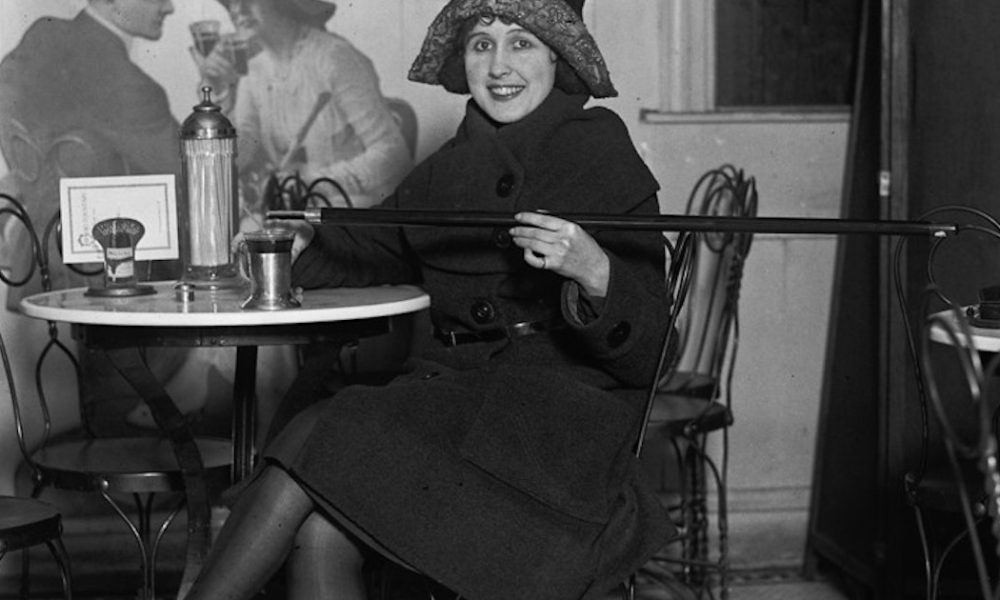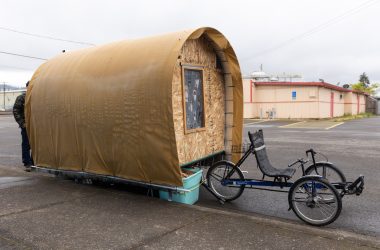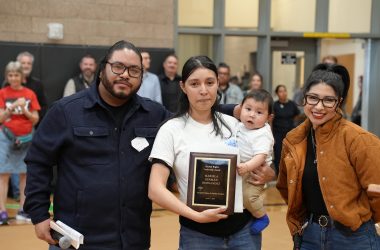 AN UNIDENTIFIED WOMAN POURS BOOZE OUT OF A CANE FLASK INTO HER DRINK AT A DRUGSTORE SODA FOUNTAIN IN 1922. IDENTIFYING DETAILS WERE NOT RETAINED WITH THIS PHOTO, SINCE BOTH THE WOMAN AND THE DRUGSTORE WERE BREAKING FEDERAL LAWS. Image provided/Library of Congress
AN UNIDENTIFIED WOMAN POURS BOOZE OUT OF A CANE FLASK INTO HER DRINK AT A DRUGSTORE SODA FOUNTAIN IN 1922. IDENTIFYING DETAILS WERE NOT RETAINED WITH THIS PHOTO, SINCE BOTH THE WOMAN AND THE DRUGSTORE WERE BREAKING FEDERAL LAWS. Image provided/Library of Congress
In 1899, the spiritual leaders of Forest Grove had a problem: There was a serpent in their Garden of Eden.
Forest Grove was founded by members of the Congregational Church – a denomination directly descended from the Puritans of colonial times – and they had an attitude toward alcohol that was, well, Puritanical. Moreover, the community was the home of Pacific University; most residents felt somewhat responsible for the young, impressionable students in their midst. Neither their faith nor their sense of responsibility was compatible with a wild, rowdy nightlife.
Accordingly, as soon as it became possible to do so, the town banned the sale of alcoholic beverages inside city limits.
Like all acts of prohibition, this law had some unintended consequences. One of these was the sudden appearance of the town of Cornelius literally just outside city limits. Naturally, Cornelius was just as ”wet” as Forest Grove was ”dry,” and it was so close that any student who dared go on a bender could literally stumble home to his dormitory room afterwards.
Another consequence, though, more subtle. It was the sudden decision by the town pharmacist, Charles Miller, to start keeping evening hours.
Back in the 1890s, physicians often prescribed alcohol for medicinal purposes, and quack medico-swindlers relied heavily on it in their patent remedies. Every serious souse knew if you couldn’t get your hands on any Jim Beam, you could usually pick up a bottle of Walker’s Jamaica Ginger for not much more money, and it would do the job just as well – or better, since it contained twice as much alcohol.
But it wasn’t usually necessary to resort to ”jake” – not until the onset of national Prohibition in the 1920s, at least. Most physicians in the 1890s were quite happy to write a prescription for a few ounces of medicinal whiskey, and most pharmacists were quite happy to sell medicinal whiskey to customers: prescription or no prescription.
So when it was no longer possible to pick up a wee dram without a tiresome walk to city limits, many local drinkers suddenly discovered a previously neglected medical need, and started visiting Miller’s pharmacy on the regular.
Whatever Miller’s moral failings might have been, they apparently did not include any lack of hustle. Soon all the business that would ordinarily have passed in and out of the town saloon and liquor store was going to his place.
And this was very frustrating. By outlawing liquor, City Hall had sworn off a big slice of revenue – from liquor taxes. But it very quickly became clear that by doing so, they had not only enabled Miller to openly and notoriously flout the spirit of their new law, they had reduced his costs enough that he was able to undercut prices in neighboring towns. Soon people were actually traveling to Forest Grove to get drunk – the exact opposite of what they wanted.
They couldn’t outlaw the practice of medicine. Miller was breaking no laws in filling prescriptions for people at 11 o’clock at night. There was only one way the good people of Forest Grove could stop him:
Arson.
And so it was that on April 6, 1897, the drugstore of Charles Miller was covertly put to the torch.
No one ever figured out who did it; and the Forest Grove government, while abhorring the heck out of such lawless action, breathed a sigh of relief and considered itself to have been done a favor.
They would soon have cause to rethink this assessment.
Miller – who, thanks to the thirsty, was hardly a poor man and who had kept up an insurance policy on the building – promptly rebuilt. This time, his pharmacy included a spacious, windowless, private room in the back – where customers could ”medicate” on the premises.
This ”medication room” was soon the most popular ticket in town.
Now, the city council in Forest Grove was composed chiefly of professors from the university and pastors from local churches. In other words, all of them were professional influencers – paid to provide moral leadership and to worry about the sins and transgressions of those who looked to them for guidance. If some modern person had asked one of them why they didn’t just mind their own business, they would have replied that anything that made it harder for their students and parishioners to keep to the straight and narrow WAS their business – more, it was their sacred mandate.
Something had to be done.
So Pacific University President Thomas McClelland and his lawyer formed a sort of detective agency which they named ”The Law and Order League,” hired some security agents to staff it, and started trying to figure out how to build a case that would shut Miller down for good.
The first thing they did was to send one of their agents to Miller’s drug-saloon undercover to see how easy it was to buy liquor. It turned out to be extremely easy. But the real big news from the infiltration wasn’t the ”how,” it was the ”who.” It seemed that half the town’s VIPs were regulars in the little private drinking den at the back of Miller’s drugstore.
One of the most regular regulars was the mayor’s brother. Another was the brother of the city judge – the guy who they had been hoping would soon be throwing the book at Miller. As if that weren’t enough, one of Miller’s frequent out-of-town customers was the county judge, to whom the case would naturally be appealed if the city judge should defy his brother with an unfavorable ruling.
McClelland wisely decided that a direct attack on the pharmacy under the city liquor ordinance would be foolish. Too many members of the flock in Forest Grove felt that grown men and women discreetly ”medicating” themselves behind closed doors was a silly thing to get upset about. So instead, he set out looking for something that would have a broader base of public support.
He settled on the crime of furnishing alcohol to minors – something nobody, wet or dry, was in favor of. He prepared a plan for a ”sting” operation, hired a couple of winsome young urchins to carry it out, and, after the two delivered, approached Congressman Thomas Tongue to ask him to take on the job of independent prosecutor to nail Miller on charges of furnishing alcohol to a minor.
The Law and Order League agents had pulled together some evidence for the case, and McClelland laid it before Tongue. What that evidence consisted of, other than the boys’ testimony, we don’t know; however, we can make some guesses based on how Tongue reacted to it: by declining the case and immediately signing onto the defense team. This, of course, is an ethically sketchy action for a lawyer to take, and it’s supremely unlikely Tongue would have taken it had he not seen some serious ethical issues with McClelland’s plan.
In court, the two youngsters obediently testified to having bought a bottle at Miller’s place. This worked – Miller was convicted.
Naturally, he appealed. But on appeal, several new witnesses appeared testifying that the boys had actually been turned down in their attempt to buy from Miller, and the bottles they’d obtained had come from somewhere else.
Brought back on the stand for cross-examination, the boys confessed: They’d been turned down at Miller’s place, but McClelland had offered them a big cash bonus if they delivered the goods. So they’d gone to a nearby town (probably Cornelius), bought the booze there, and told everybody it had come from Miller. McClelland, of course, had been eager to believe them, and had paid them handsomely for their service.
Needless to say, Miller was acquitted.
In the end, life went on as it had, with Forest Grove’s medicinal drinkers discreetly imbibing in their secret room and the rest of the community pretending not to know. McClelland soon left town, going back east to Illinois to take a new job there. Miller eventually went into law enforcement; by the 1920s, ironically enough, he was a Prohibition agent – in charge of the Detroit bureau, on the front lines of the battle to keep Canadian rum runners out.
This story, by the way, is one of dozens that’s covered in more detail in Ken and Kris Bilderback’s book Law and Order at the End of the Oregon Trail. The book goes on to talk about the ”town tradition” of tit-for-tat midnight firebuggery that sprang out of this incident, with drinkers torching temperance churches and believers lighting up saloons – all of which which may be a good subject for a future Offbeat Oregon column.
(Sources: Bilderback, Ken and Kris. Law and Order at the End of the Oregon Trail. Gaston: Ken Bilderback, 2015; Washington County Hatchet archives, April 1897)
Finn J.D. John teaches at Oregon State University and writes about odd tidbits of Oregon history. For details, see http://finnjohn.com. To contact him or suggest a topic: [email protected] or 541-357-2222.








